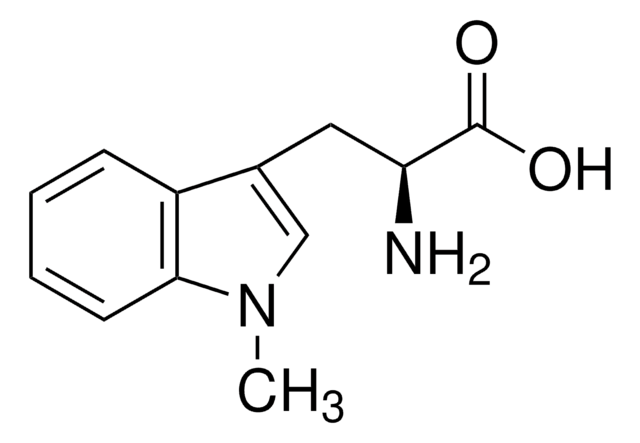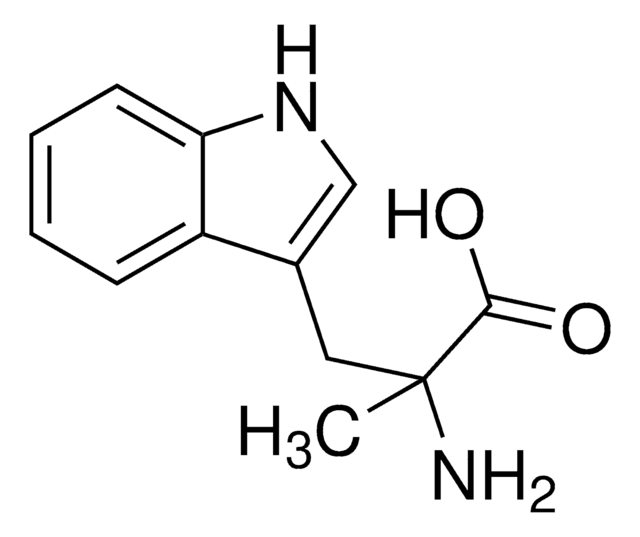452483
1-Methyl-D-tryptophan
95%, for peptide synthesis
Synonym(s):
(2R)-2-Amino-3-(1-methyl-1H-indol-3-yl)propanoic acid, D-(+)-1-Methyltryptophan
About This Item
Recommended Products
product name
1-Methyl-D-tryptophan, 95%
Assay
95%
form
lumps and powder
optical activity
[α]22/D +12.4°, c = 2 in acetic acid
reaction suitability
reaction type: solution phase peptide synthesis
mp
242-245 °C (lit.)
application(s)
peptide synthesis
SMILES string
Cn1cc(C[C@@H](N)C(O)=O)c2ccccc12
InChI
1S/C12H14N2O2/c1-14-7-8(6-10(13)12(15)16)9-4-2-3-5-11(9)14/h2-5,7,10H,6,13H2,1H3,(H,15,16)/t10-/m1/s1
InChI key
ZADWXFSZEAPBJS-SNVBAGLBSA-N
Related Categories
Application
Storage Class Code
11 - Combustible Solids
WGK
WGK 3
Flash Point(F)
Not applicable
Flash Point(C)
Not applicable
Regulatory Listings
Regulatory Listings are mainly provided for chemical products. Only limited information can be provided here for non-chemical products. No entry means none of the components are listed. It is the user’s obligation to ensure the safe and legal use of the product.
JAN Code
452483-250MG:
452483-VAR:
452483-BULK:
452483-1G:
452483-10G:
Certificates of Analysis (COA)
Search for Certificates of Analysis (COA) by entering the products Lot/Batch Number. Lot and Batch Numbers can be found on a product’s label following the words ‘Lot’ or ‘Batch’.
Already Own This Product?
Find documentation for the products that you have recently purchased in the Document Library.
Customers Also Viewed
Our team of scientists has experience in all areas of research including Life Science, Material Science, Chemical Synthesis, Chromatography, Analytical and many others.
Contact Technical Service









